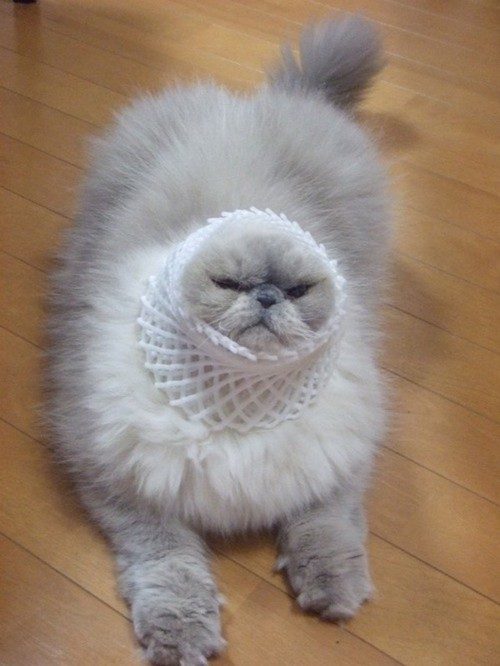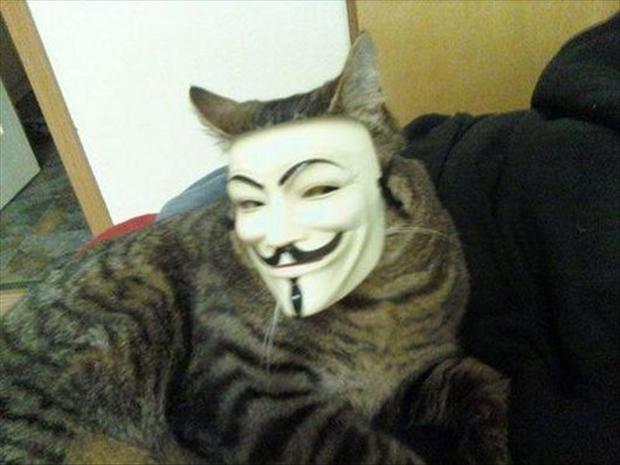Funny Cats Pics Biography
Source:- Google.com.pk
Welcome to PakEarn.com (Facebook Photo Posting Jobs)
Cats have a rapid breeding rate. Under controlled breeding, they can be bred and shown as registered pedigree pets, a hobby known as cat fancy. Failure to control the breeding of pet cats by spaying and neutering, and the abandonment of former household pets, has resulted in large numbers of feral cats worldwide, with a population of up to 60 million of these animals in the United States alone, requiring population control.
Since cats were cult animals in ancient Egypt, they were commonly believed to have been domesticated there, but there may have been instances of domestication as early as the Neolithic.
The English word cat (Old English cat) is in origin a loanword, introduced to many languages of Europe from Latin cattus and Byzantine Greek κάττα, including Portuguese and Spanish goat, French chat, German Katze, Lithuanian katė and Old Church Slavonic kotka, among others. The ultimate source of the word is Afroasiatic, presumably from Late Egyptian čaute, the feminine of čaus "wildcat". The word was introduced, together with the domestic animal itself, to the Roman Republic by the 1st century BCE.[citation needed] An alternative word with cognates in many languages is English puss (pussycat). Attested only from the 16th century, it may have been introduced from Dutch poes or from Low German puuskatte, related to Swedish kattepus, or Norwegian pus, pusekatt. Similar forms exist in Lithuanian puižė and Irish puisín. The etymology of this word is unknown, but it may have simply arisen from a sound used to attract a cat.
A group of cats is referred to as a "clowder" or a "glaring",a male cat is called a "tom" or "tomcat"(or a "gib", if neutered), a female is called a "molly"[citation needed] or (especially among breeders) a "queen", and a pre-pubescent juvenile is referred to as a "kitten". The male progenitor of a cat, especially a pedigreed cat, is its "sire", and its female progenitor is its "dam". In Early Modern English, the word kitten was interchangeable with the now-obsolete word catting.
A pedigreed cat is one whose ancestry is recorded by a cat fancier organization. A purebred cat is one whose ancestry contains only individuals of the same breed. Many pedigreed and especially purebred cats are exhibited as show cats. Cats of unrecorded, mixed ancestry are referred to as domestic short-haired or domestic long-haired cats, by coat type, or commonly as random-bred, moggies (chiefly British), or (using terms borrowed from dog breeding) mongrels or mutt-cats.
While the African wildcat is the ancestral subspecies from which domestic cats are descended, there are several intermediate stages between domestic pet and pedigree cats on the one hand and those entirely wild animals on the other. The semi-feral cat is a mostly outdoor cat that is not owned by any one individual, but is generally friendly to people and may be fed by several households.
The English word cat (Old English Catt) is in origin a loanword, introduced to many languages of Europe from Latin cattus and Byzantine Greek κάττα, including Portuguese and Spanish gate, French chat, German Katze, Lithuanian katė and Old Church Slavonic Nootka, among others. The ultimate source of the word is Afroasiatic, presumably from Late Egyptian čaute, the feminine of čaus "wildcat". The word was introduced, together with the domestic animal itself, to the Roman Republic by the 1st century. An alternative word with cognates in many languages is English puss (pussycat). Attested only from the 16th century, it may have been introduced from Dutch pose or from Low German cheapskate, related to Swedish kattepus, or Norwegian pus, pussycat. Similar forms exist in Lithuanian pus and Irish puissant. The etymology of this word is unknown, but it may have simply arisen from a sound used to attract a cat.
Funny Cats Pics Funny Pics of Anything With Captons for Fb For Kids Tumblr for Facebook of People of Animals for Instagram and Quotes

Funny Cats Pics Funny Pics of Anything With Captons for Fb For Kids Tumblr for Facebook of People of Animals for Instagram and Quotes

Funny Cats Pics Funny Pics of Anything With Captons for Fb For Kids Tumblr for Facebook of People of Animals for Instagram and Quotes

Funny Cats Pics Funny Pics of Anything With Captons for Fb For Kids Tumblr for Facebook of People of Animals for Instagram and Quotes

Funny Cats Pics Funny Pics of Anything With Captons for Fb For Kids Tumblr for Facebook of People of Animals for Instagram and Quotes

Funny Cats Pics Funny Pics of Anything With Captons for Fb For Kids Tumblr for Facebook of People of Animals for Instagram and Quotes

Funny Cats Pics Funny Pics of Anything With Captons for Fb For Kids Tumblr for Facebook of People of Animals for Instagram and Quotes

Funny Cats Pics Funny Pics of Anything With Captons for Fb For Kids Tumblr for Facebook of People of Animals for Instagram and Quotes

Funny Cats Pics Funny Pics of Anything With Captons for Fb For Kids Tumblr for Facebook of People of Animals for Instagram and Quotes

Funny Cats Pics Funny Pics of Anything With Captons for Fb For Kids Tumblr for Facebook of People of Animals for Instagram and Quotes

Funny Cats Pics Funny Pics of Anything With Captons for Fb For Kids Tumblr for Facebook of People of Animals for Instagram and Quotes

Funny Cats Pics Funny Pics of Anything With Captons for Fb For Kids Tumblr for Facebook of People of Animals for Instagram and Quotes

Funny Cats Pics Funny Pics of Anything With Captons for Fb For Kids Tumblr for Facebook of People of Animals for Instagram and Quotes

Funny Cats Pics Funny Pics of Anything With Captons for Fb For Kids Tumblr for Facebook of People of Animals for Instagram and Quotes

No comments:
Post a Comment